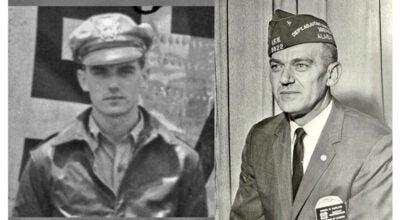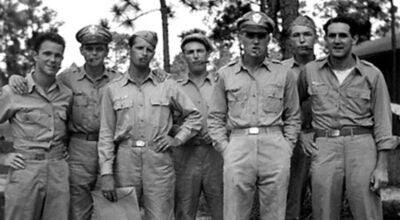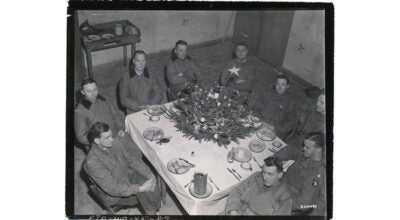James ‘Mike’ Sprayberry, Lt. Col., Armor, U.S. Army, Vietnam, Medal of Honor
Published 7:01 pm Friday, May 14, 2021
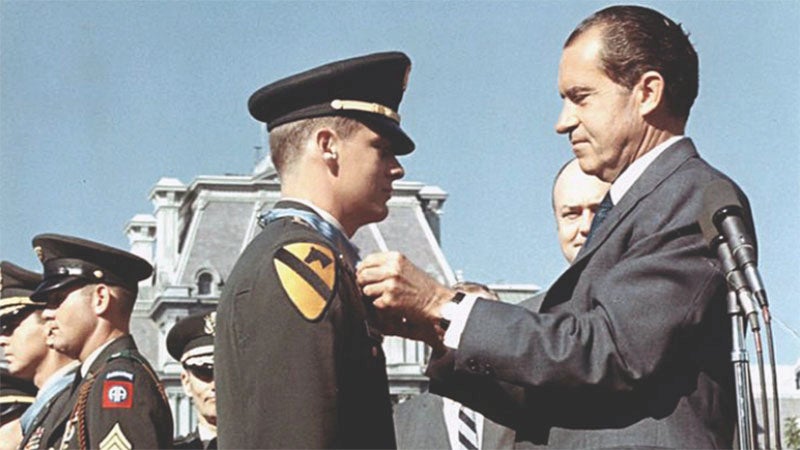
- President Nixon awards the Medal of Honor to Capt. Mike Sprayberry at the White House on Oct. 9, 1969. [Photo: alchetron.com]
|
Getting your Trinity Audio player ready...
|
Soft-spoken and humble, Mike Sprayberry belies the fierce actions of the young 1st Lt. who earned his nation’s highest honor on April 25, 1968. As Executive Officer, D Company, 5th Battalion, 7th Cavalry Regiment, 1st Cavalry Division [Airmobile], Mike Sprayberry took charge after his company commander and many others were wounded in an ambush in the A Shau Valley in South Vietnam. Those heroic actions had their roots in the small Alabama town of Sylacauga.
Mike Sprayberry was born in 1947 in LaGrange, Georgia. His mother was just 15 at the time and sent him to live with his aunt in Sylacauga, Alabama. She adopted Mike when he was five. He spent his summers in LaGrange and the school year in Sylacauga, attending B. B. Comer High School. Mike said, “I’m very proud they were able to make that arrangement…..I had the best of both families. It worked out perfectly.” He actually grew up on a farm in Stewartville in Coosa County but was allowed to attend school in Sylacauga. He graduated high school in 1965 and attended Alex City Junior College briefly before joining the Army in April 1966. After basic training, he attended OCS [Officer Candidate School] and was commissioned a 2nd Lt. Within a year, he found himself in Vietnam.
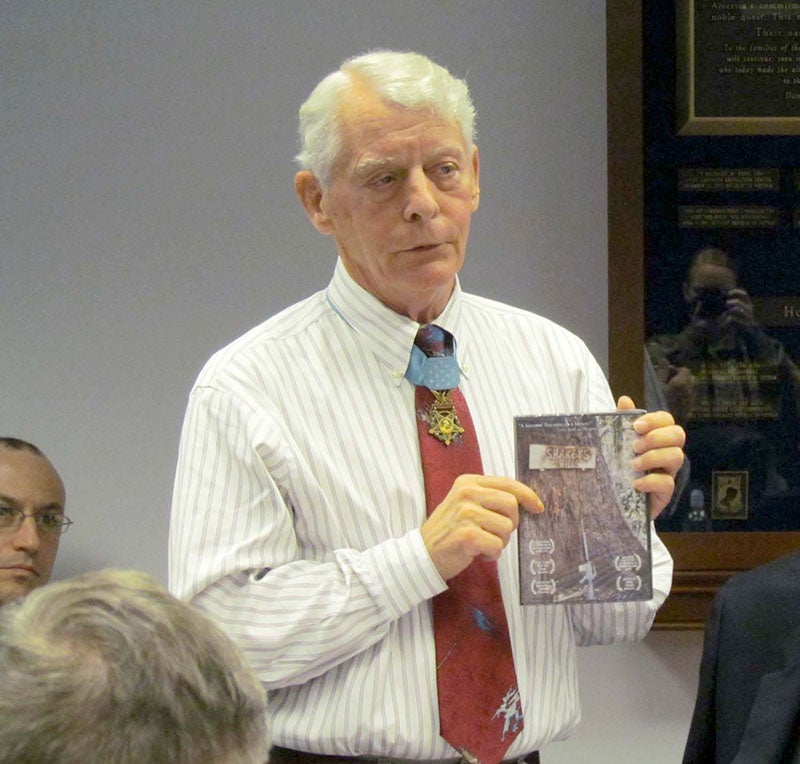
Medal of Honor recipient, Lt. Col. Mike Sprayberry speaks to the employees of the Defense Prisoner of War/Missing in Action Accounting Agency in 2015.
[Photo: dpaa.mil]
On April 25, 1968, Mike Sprayberry’s Company D was part of the assault when they were ambushed by a large North Vietnamese force. His company commander and many of his fellow soldiers were wounded and separated from the main body of the Company. An attempt to rescue them during the daylight had come under heavy fire and had been unsuccessful. During the night, Lt. Sprayberry organized and led a volunteer patrol in an attempt to rescue the trapped men. The patrol encountered heavy machine gun fire and Mike quickly led the men to protective cover. Leaving his men behind, he crawled up to the enemy bunker and silenced the machine gun with a hand grenade. He located several enemy positions nearby and attacked them with the rest of his hand grenades. At that point, he crawled back to his men’s position to replenish his supply of hand grenades.
As he reached his men, two more grenades were thrown from an enemy bunker nearby. Lt. Sprayberry, without concern for his own life, charged the bunker, killing the enemy soldiers. After placing two of his men to cover him, he again crawled forward and destroyed three more enemy bunkers. One enemy soldier charged from a concealed position and Mike shot him with his pistol, before destroying another enemy bunker.
At this point, Mike was able to establish radio contact with the men who had been isolated and directed them to his position. Once the two groups had joined, Lt. Sprayberry organized litter bearers to evacuate the wounded men. As they were nearing the completion of the evacuation, they again came under fire from an enemy machine gun. Leaving the men, Mike crawled close enough to the enemy bunker to destroy it with a hand grenade. He then returned and helped complete the rescue, getting the men back to friendly lines. The entire rescue operation had taken more than seven hours. Lt. Sprayberry had killed at least 12 enemy soldiers, destroyed two machine gun nests and numerous bunkers.
The next day, the company tried to recover three bodies they had left behind but were beaten back by heavy enemy fire. The day after that, the weather cleared and a helicopter crew volunteered to try and locate the bodies. The enemy shot down the helicopter and another three men were lost. Now there were six bodies unrecovered. Mike Sprayberry would not forget them.
On October 9, 1969, President Richard Nixon presented the Medal of Honor to Mike Sprayberry at the White House. The citation reads in part, “Captain Sprayberry’s indomitable spirit and gallant action at great personal risk to his life are in keeping with the highest traditions of the military service and reflect great credit upon himself, his unit, and the U.S. Army.”
After returning to the states in 1969, Mike decided to leave the military. He was at Fort Lewis, Washington, when he came across an anti-war demonstration. Angered by the demonstrators, he decided to make a career of the Army. He retired as a Lt. Colonel in 1988.
After retirement, Mike Sprayberry returned to Alabama to run the family farm. Even back home, he often thought of those six Americans that were never recovered from the A Shau Valley. Through the years, Mike talked with special recovery teams whose job was to locate and return missing American soldiers. Finally, in 2006, he traveled to Vietnam to assist with the search for the missing men, left behind in the A Shau Valley.
Although unable to locate the missing men, Sprayberry spoke highly of his former enemies. “The Vietnamese are proud of their country and have the same worries as us: taxes, corruption, and school quality. They take good care of their veterans.” On the trip, he was invited to the home of a former North Vietnamese Army Colonel Phoung, who had served in the A Shau Valley for five years. They even joked about shooting at each other.
On November 9, 2015, Sprayberry was invited to speak to employees of the Defense Prisoner of War/Missing in Action Accounting Agency [DPAA] in Virginia. Humble, and soft-spoken, he introduced himself as a retired farmer from Alabama. He thanked them for their work in the field and shared his concerns and desires for those Americans still missing after so many years.
He remains an advocate for the recovery of the soldiers left behind in the A Shau Valley those many years ago.
— John Vick
[Sources: Wikipedia, DPAA news release, Jan. 8, 2016, “Medal of Honor Recipient Recalls Times in Vietnam” by Lt. Col. Holly Slaughter and Staff Sgt. Kristen Duus; The Sylacauga News article, Feb. 14, 2018, “Famous People of Sylacauga – James ‘Mike’ Sprayberry.”; Freedoms Foundation and Friends of the Medal of Honor Grove article “On this Day in Medal of Honor History – James M. Sprayberry, Army, Vietnam].
More COLUMN -- FEATURE SPOT
